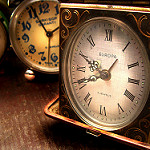Another September 11th has come and gone. Remembrances were shared, stories told, honors given. We pick up, we move on.
Yet feelings may linger. Perhaps it is something you can’t exactly put a finger on–some  vague discomfort. Maybe it’s an unidentifiable sense of loss, anxiety, or anger. Whatever it is, it followed a crescendo as the date approached, and now slowly ebbs as time marches beyond.
vague discomfort. Maybe it’s an unidentifiable sense of loss, anxiety, or anger. Whatever it is, it followed a crescendo as the date approached, and now slowly ebbs as time marches beyond.
Why do anniversary reactions happen? Not just on September 11th, but on any date marking an experience of trauma or loss?
During the course of our lives, our bodies teach us how to protect ourselves. Structures in the nervous system are designed to react certain ways when dangerous situations occur, such as “fight or flight,” and to remember important cues surrounding adverse events. We are better able to look out for ourselves when cues let us know that danger lurks ahead.
These triggers can come from any of the senses: sight, sound, smell, taste, or touch. They occur on a feeling level, rather than a thinking level, which makes their origins more difficult to pinpoint.
Feelings connected to cues aren’t necessarily unpleasant. The smell of baking bread might bring back that safe feeling of being at Grandma’s house. On the other hand, the smell of a charcoal grill might take you back to the horror of a past house fire. Our bodies are equal opportunity that way, reminding us of both the good and the bad.
Should we do anything about anniversary reactions? Not necessarily. For most, they simply appear, then pass. Some people gain a sense of satisfaction by doing something to remember the original trauma. They find an activity that assigns the feelings to their rightful place, and helps move beyond it.
 However, as anniversary reactions weave in with the greater fabric of life, it may help to step back and look at the big picture. How might we use times like this to enhance appreciation for the miracle of human experience?
However, as anniversary reactions weave in with the greater fabric of life, it may help to step back and look at the big picture. How might we use times like this to enhance appreciation for the miracle of human experience?
When you recognize an anniversary reaction, comfort your inner being with a gentle “there, there, now.” Take a moment to meditate on the gift of this warning system, and thank your body for its faithful dedication to guiding you away from harm. Love your body for what it continues to do for you, long after danger has passed.
For more about anniversary reactions, see “Reminders of Trauma: Anniversaries“, offered by the National Center for PTSD.

Although trauma is apart of life but ultimately make us stronger in the long run. This is not visible right away but at the end of the thing we realize it.
LikeLike
Yes, indeed! And it has a name: post-traumatic growth.
LikeLiked by 1 person